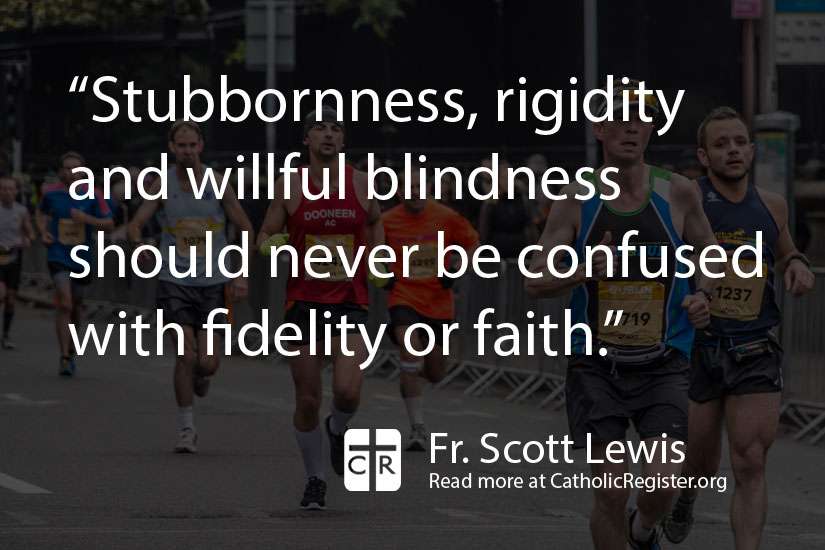King Zedekiah had stacked his court with advisors and prophets that continually told him that everything was fine. No need to worry; no need to change. Jeremiah’s mission was to preach the word that no one wanted to hear. He warned them against resisting the Babylonians and engaging in power politics and he exhorted them to genuine repentance. This unwelcome burden explains why he was panic stricken and reluctant to accept the mission that God gave him. He knew that it would end badly.
Throughout his long ministry, Jeremiah was assaulted, abused, insulted, humiliated and in constant danger. In this story, there was even an attempt on his life. He tried to quit and walk away. God would not let him go, and God’s words burned within him — so he stayed! He lived to see his words unheeded and the disaster that he prophesied come to pass — the destruction of the temple at the hands of the Babylonians in 586 B.C. From a human standpoint, his ministry was a failure. But God did not call him to be successful but faithful.
Those in power rarely like to hear contrary words or challenges. Only the party line is permitted, but when the party line is followed without self-examination and reflection, disaster is usually not far behind. We need to develop a willingness to listen to other voices, even ones that we may not like, for they often contain at least part of the truth. Stubbornness, rigidity and willful blindness should never be confused with fidelity or faith.
Marathon races are long and grueling. Many drop out along the way, and even the home stretch is an ordeal. The finish line is so close and yet so far. It is interesting that many of the spectators that gather near the finish line shout words of encouragement to the runners, especially to those that are faltering. The author of Hebrews paints a similar picture: we are surrounded by a cloud of unseen witnesses who give us encouragement and assistance during our race. We are not alone! Jesus Himself has run the race before us — He cleared the way and removed the obstacles. He knows what the race is like. He has suffered and struggled too. Jesus stands among the unseen witnesses as our greatest supporter, always ready to give us strength, hope and courage to face the challenges ahead.
To those accustomed to Jesus meek and mild or the Prince of Peace, the words of this Gospel passage are indeed jarring. Jesus insists that He has come to set the Earth on fire, bring division and turn everyone against one another. Jesus was not an agitator or trouble maker, but a divine teacher. He imparted spiritual principles to His followers, that if followed, would change the world. We find examples of these principles in the Beatitudes: non-violence, peacemaking, forgiveness, purity of mind and heart, humility and patience. This includes the ability to find the face of God in all humans and the unwillingness to visit injustice or unkindness on anyone.
We may give lip-service to these values, but when they are truly put into practice, they are disruptive and challenge the status quo and the cherished fears and prejudices that people harbour. In our own time, we can witness the polarization described by Jesus in our world. Gone is dialogue, moderation, civility and compromise — extremism seems to be triumphant. The world is increasingly divided between those who hear and heed God’s words in meeting our challenges and those who prefer fear, exclusion, selfishness, tribalism and violence. This has affected politics, economics, social interaction, education and religion.
The words of Jesus are indeed divisive, for they force us to choose how we will live and how we will treat others. Following a long Jewish tradition, we are offered the path of life and the path of death. Which one will humanity choose?

